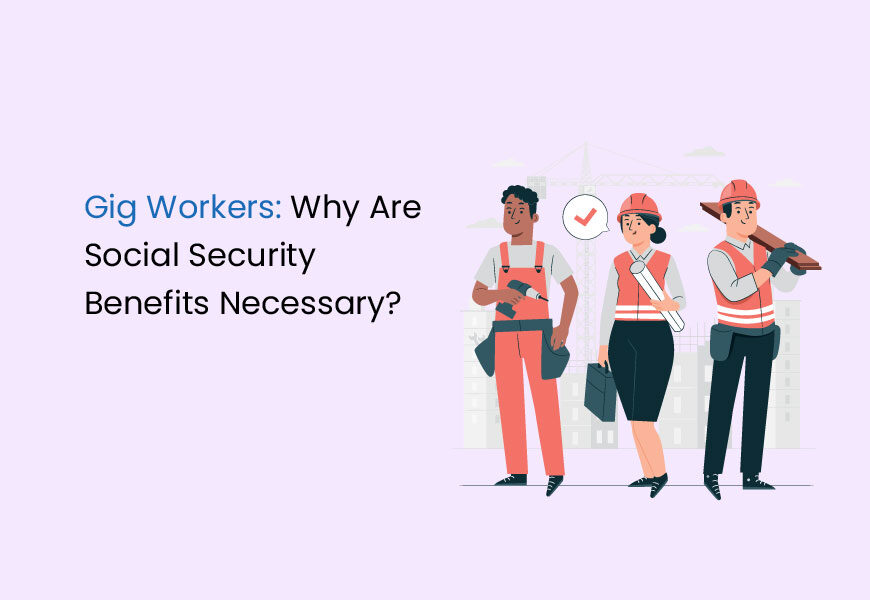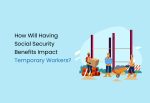Globally, we are seeing an increase from hierarchical, formal 9-to-5 jobs to more flexible, on-demand jobs in the gig economy. Large sections of workers are flocking to the gig economy owing to the greater levels of flexibility, autonomy and freedom. The growing popularity of e-commerce and app-based technology platforms also means there is a fast-growing demand for gig workers.
India has nearly 15 million gig workers at present. The gig economy has the potential to add 90 million more jobs to the Indian economy over the next 8-10 years and an additional 1.25% to the GDP.
From grocery shopping and food deliveries to driving taxis and offering at-home beauty services to freelance consulting, programming and content writing, gig workers are everywhere. Through their efficient and timely services, gig workers make our lives easier and more convenient every day but that is not all. The platform workers, in particular, acted as frontline workers during the pandemic, making essentials available to everyone and keeping the economy moving.
Despite the criticality, phenomenal growth and potential of gig workers, they are still treated as outliers in the workforce. Millions of gig workers don’t have basic rights or access to any social security. In fact, data suggests that 95.3% of Indian gig workers don’t have access to any form of social security to cover insurance, health and medical costs, retirement benefits, etc. Why is social security so critical for gig workers? Read on to find out.
Who are Gig Workers?
Gig workers are those who work/ anticipate work and earn their livelihood outside the traditional employer-employee arrangements. Also known as non-standard workers, they are typically part-time workers who provide their labour on a project and/or on-demand basis. Gig workers may access work through technological platforms or using conventional means like listing in local newspapers, word-of-mouth, etc.
Unlike other kinds of informal labour, gig work isn’t always low-skill work. In fact, 47% of gig workers in India are in medium-skill jobs, 31% in low-skill jobs and 22% in high-skill jobs. It is predicted that the domination of medium-skill gig work will go on till 2030 when it will be replaced by other skills.
Gig workers are broadly categorized into platform and non-platform workers. Platform workers are those gig workers whose work is based on e-commerce and app-based technology platforms. So, gig workers employed through apps like Uber, Swiggy, Zomato, Amazon, Big Basket, Ola, Porter, Urban Company etc. are platform workers.
Non-platform workers are casual labourers and own account workers who work in more conventional settings. Non-platform workers include independent contractors, freelancers, contingent workers, etc. Some examples would be plumbers, electricians, beauticians, part-time drivers, freelance writers, freelance designers, etc.
Why is there such a rapid increase in gig work?
Rapid digital transformation and urbanization, the growing popularity of e-commerce and app-based technology platforms and changing consumer behaviour are contributing to the growth of the gig economy. It also offers a great deal of flexibility and freedom to workers who don’t have to be tied up in contracts and can work with multiple clients at the same time to maximize earnings.
From the employer perspective, hiring gig workers reduces their costs, enables them to adjust their headcounts on the basis of their current business needs, access workers with niche skills without having to hire them full-time and quickly fill talent gaps.
Challenges Faced by Gig Workers
Despite the freedom, flexibility and in some cases, the potential to earn more, gig workers face several challenges. These range from unsafe, inhumane working conditions, irregular and lower-than-industry-rate wages, high risk of occupational diseases and accidents to a lack of job security, high out-of-pocket expenses and stress of algorithm-based management and performance evaluation practices.
The challenges are exacerbated by the fact that they don’t fall under the purview of minimum wage, worker safety or other labour legislations. They have no social security benefits or workplace entitlements. Being excluded from labour laws, they are marginalized, exploited and overworked for meagre, unstable payments.
Why Are Social Security Benefits Necessary for Gig Workers?
While policy level changes, skill development and access to institutional credit to set up and scale own ventures are necessary to change the plight of gig workers and uplift them, provision of social security benefits will significantly improve their quality of life. Social security benefits typically include:
- Healthcare benefits including medical insurance
- Disability benefits
- Maternity benefits
- Retirement benefits
- Gratuity
- Insurance
Access to Timely, Proper Healthcare
Gig workers and their families will gain access to proper, timely healthcare through the provision of social security benefits. While high skill workers may be able to afford medical insurance and out-of-pocket medical expenses, the millions of platform workers, casual workers and others in low skill, physical jobs may not be able to.
It is precisely these workers who are prone to accidents, ill health and occupational diseases owing to the physical nature of their work. For instance, cab drivers with ride-hailing services and delivery persons working with food, grocery and other app-based platforms work nearly 16-20 hours daily. They don’t get enough sleep with many sleeping less than 6 hours. These put them at a high risk of fatigue-related accidents and poor health. Back and neck pain, wrist pain, liver issues and constipation are top-reported ailments by app-based gig workers.
But without healthcare benefits, they will have to spend out-of-pocket for sickness, hospitalization, etc. Owing to these expenses and the loss of pay they will face while going to a doctor, they don’t prioritise their own health. This erodes their health further.
With healthcare benefits, gig workers and their families can access preventive and curative healthcare without out-of-pocket expenses.
Disablement and Survivorship Benefits to the Worker and Their Family
Closely related to the previous point, social security ensures the availability of disablement and survivorship benefits. We constantly keep hearing news of accidents and deaths of platform workers. Without insurance or disablement benefits, the families of the worker will be left to fend for themselves. Their children may not be able to continue education and the family may fall (deeper) into the clutches of poverty.
A Sense of Financial Security
Gig workers gain a sense of financial security and stability even when their employment terms are unstable and wages irregular. Even if there is a socio-economic eventuality, a global pandemic, a natural disaster or a personal contingency, they will have a safety cushion to fall back on. They will not fall deeper into poverty in case of any emergency.
Further, with retirement benefits and pensions, the ageing gig workers may be able to retire after all and not be forced to work even when their health and age don’t permit.
Improved Savings
Without too many out-of-pocket expenses for healthcare, gig workers will be able to save more and divert savings to other important areas like education, housing, skill development and so on.
The Way Forward
Social security benefits may not be mandatory to gig workers. However, by paying these benefits to gig workers, employers can build long-term, trusting relationships with them and gain the reputation of a socially responsible employer, thus attracting and retaining the best talent.
If you employ gig workers and want to start paying social security benefits, leverage the TankhaPay app.
Download the TankhaPay app now














